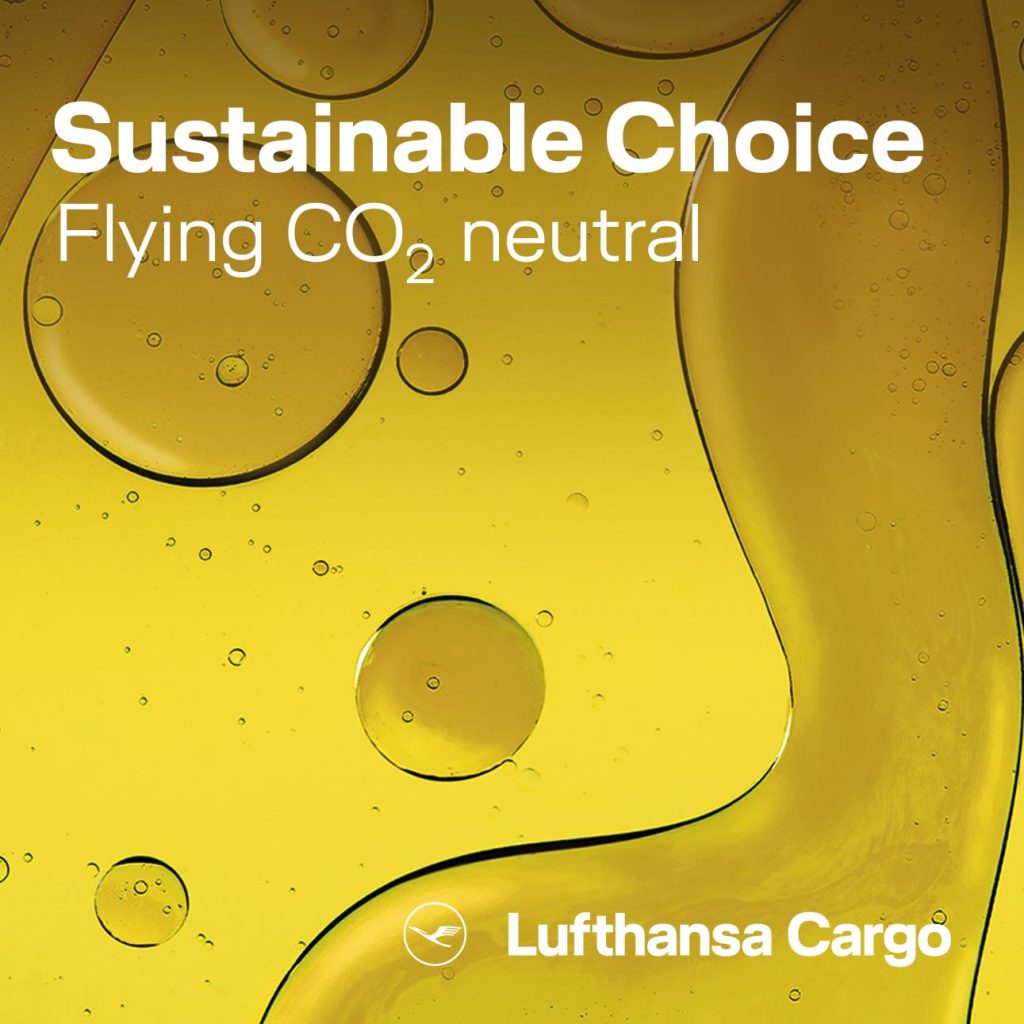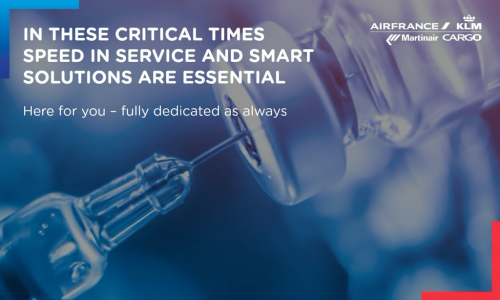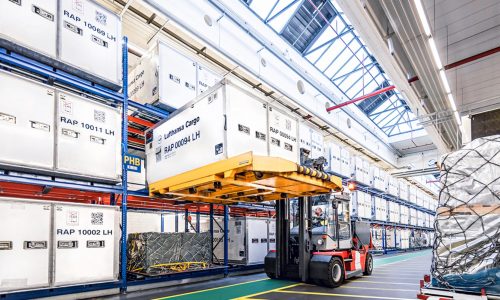Sustainable Aviation Fuel and CO2 compensation now bookable worldwide

All Lufthansa Cargo customers can now opt for CO2-neutral transport of their freight.
In addition to the use of Sustainable Aviation Fuel (SAF), the company also offers certified offsetting projects to avoid or compensate for the fossil CO2 emissions generated during airfreight transport from the outset.
The add-on ‘Sustainable Choice’ service is available on all routes with a freighter segment, for all product groups and all customers worldwide. Customers can offset or show the corresponding CO2emissions proportionately in their own carbon balance.
“For the transport of airfreight, we are striving for 100 percent CO2neutrality. However, we will only achieve this ambitious goal together with our customers. Therefore, we are very pleased to now be able to offer everyone a way to contribute to reducing their own carbon footprint,” said Dorothea von Boxberg, CEO of Lufthansa Cargo.
“Already in recent months, we have observed an increasing demand for Sustainable Aviation Fuel. These requests confirm to us that the use of sustainable aviation fuels is an essential component for climate neutrality in airfreight.”
Lufthansa Cargo currently offers two options for transporting shipments more sustainably. When using Sustainable Aviation Fuel, a certain amount of sustainable bio-fuel is mixed with conventional kerosene, thus avoiding fossil CO2emissions that normally occur when conventional kerosene is burned.
In addition, further CO2 emissions that arise, for example, during the production and transport of SAF, are offset through compensation with environmentally friendly climate protection projects.
The complete CO2 neutrality of a freight shipment can be achieved either by combining both options or by 100 percent compensation in climate protection projects.
Already during the booking process, customers can use a CO2 calculator to determine the CO2 footprint for each shipment flying with Lufthansa Cargo. Possible routes can be compared with regard to their CO2 emissions. Customers can then choose to have their freight transported CO2-neutrally for an additional charge as part of their booking.
The Sustainable Choice service also includes the option for customers to have a CO2 report drawn up afterwards to provide an overview of all the CO2 emissions of the shipments they have transported. In addition to the total CO2 emissions, the report also contains a breakdown by mode of transport.
With such a CO2 report, customers are also able to compensate for CO2 emissions afterwards for completed freight transports.
As early as November 2020, Lufthansa Cargo carried out the first 100 percent CO2-neutral commercial freight rotation from Frankfurt to Shanghai and back together with DB Schenker.
Since April 2021, weekly CO2-neutral freighter connections between Frankfurt and Shanghai have also been available. The freight crane is committed to the Sustainable Development Goals of the United Nations and actively promotes five selected sustainability goals, including “Climate Action.
In addition, Lufthansa Cargo supports the ambitious CO2 reduction goals of the Lufthansa Group: By 2030, the CO2 balance is to be reduced by half compared to 2019 – the cargo airline is working to reach this milestone even sooner. In the long term, climate neutrality is the common goal.
For a long time, Lufthansa Cargo has been working to keep its own CO2 footprint as small as possible. The company invests quite substantially in continuous fleet modernization:
By the end of 2021, Lufthansa Cargo will have converted its entire fleet to freighters of the type Boeing 777F – currently the most modern and efficient freighter with the best environmental balance. To reduce the fleet’s carbon footprint even further, all B777Fs will be equipped with Sharkskin technology from 2022.
The innovative AeroSHARK foil, which is modelled on sharkskin, reduces the frictional resistance of the aircraft in the air and thus reduces fuel consumption. In the Lufthansa Cargo fleet, this enables annual savings of about 3,700 tons of kerosene or nearly 11,700 tons of CO2 emissions.
Since 2020, Lufthansa Cargo has also been using lightweight containers exclusively in its flight operations. The weight reduction on board is considered a significant factor influencing the CO2 balance.
In addition, Lufthansa Cargo established a global, company-wide environmental management system between 2008 and 2015 that takes into account all environmentally related processes and thus integrates all employees worldwide. This was certified again in 2020 according to the internationally recognized ISO standard. Within the framework of this environmental management system, numerous measures have been successfully implemented in recent years, such as the procurement of green electricity throughout the German-speaking region.

